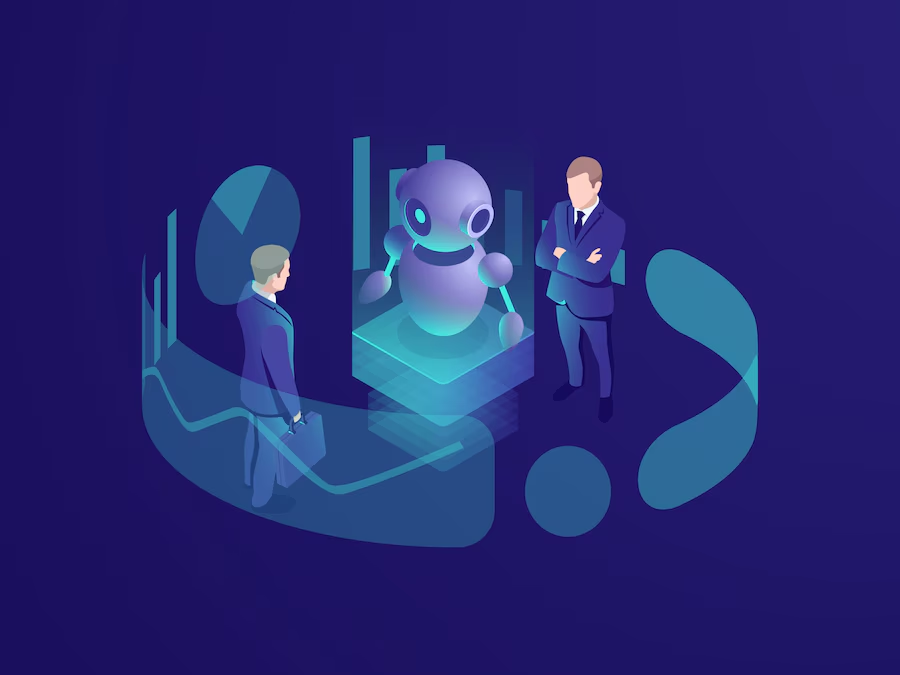AI, from being an emerging technology a decade ago, has matured into the bedrock of modern business innovation within this last decade. Radically transforming games across industries through scalable solutions which shake traditional business models and create new means to engage consumers, especially AI-based start-ups, would not only automate but exploit data, machine learning, and advanced analytics, providing value like never before, increasing efficiency, and generating profitability.
We’re going to look at how AI businesses form industries, the benefits of AI for start-up companies, and how such companies drive success from concept to market domination.
The Emergence of AI Powered Startups
Over the last few years, it has been AI that is the sparkplug for an entirely new wave of startups in a wide swath of industries-health and finance, retail, entertainment, and many more sectors. It is this approach that startups have adopted AI technologies to solve problems in entirely different ways thought impossible.

How Does AI Act As a Game Changer For Every Startup
Most startups have a deficit of resources, extremely high competition, and extreme pressure to scale very fast. AI serves as a solution to most of these problems:
- Efficiency and Automation: AI helps companies automate repetitive, mundane, and time-consuming tasks on customer service to data processing, thereby saving on the workforce size in order to focus on high-impact areas of the business.
- Data-Driven Decision Making: AI-driven analytics give the startup an ability to make smarter decisions much faster with better and more timely data. Thus, they can pivot quickly, test new ideas, and calibrate their business strategies without gut instincts.
- Scalability: Scaling businesses need to scale up quickly. AI tools help adapt quickly to increasing demand without having to multiply the input dimension. This could either mean automatic customer support by chatbots or the ability to personalize marketing at scale; in short, AI makes growth happen without costs multiplying exponentially.
- Innovation and Differentiation: AI allows unique products and services that may never have existed before. AI startups can be differentiated through personalized experiences, predictive services, or completely new ways of doing business – a manner of becoming differentiated among others.
AI-Powered Startups Revolutionizing Industries
Fintech, Healthcare, and more-what was previously unthinkable until AI-makes it currently feasible to revolutionize even the most conservative fields with data-driven strategies.
Healthcare:
AI for diagnostics and personalized medicine AI is changing health mainly through its innovations in diagnostics and personalized medicine. For instance, AI has seen companies like Zebra Medical Vision and PathAI combine to analyze images to detect diseases much before the human specialists can. Their algorithms could determine conditions such as cancer, cardiovascular disease, and neurological disorders, which would help to minimize diagnostic errors while improving the results of patients.
On the same track, startups like Tempus and Atomwise are exploiting AI to scan a patient’s genetic makeup so that doctors can design treatment that is specific to the patient in other words, personalized medicine. This essentially represents a change in health care as the world throws away the “one-size-fits-all” model to therapies based on the patient’s genetic makeup, lifestyle, and even history.
Finance:
AI-Powered Investment and Fraud Detection. This is a new, smarter, and more efficient investment and risk-management option disrupting the financial world. Companies such as Wealthfront, Betterment started employing AI with the use of automated advisory services wherein algorithms guide the building and management of a particular investment portfolio aligned with a defined set of objectives and acceptable level of risk.
The other side of the coin is that AI is being used to detect fraud and manage risks much better. With Darktrace and Feedzai, it is these start-ups that use AI in sifting through transaction patterns, hence look for anomalies that may, therefore point out fraudulent activities. These AI-based systems can identify threats much faster and very accurately compared to the traditional methods thus saving businesses millions of dollars in losses.
Retail:
Customized Shopping and Supply Chain Optimization AI startups in retail are transforming the industry. They offer customized shopping and supply chain optimization today. For instance, Stitch Fix and Shopify apply recommendation engines that are founded on AI to suggest products to customers highly customized towards customer preference, shopping history, and behavior.
Additionally, AI is transforming the back-end of retail by allowing retailers to better improve their supply chains. For instance, new start-ups such as ClearMetal and Llamasoft utilize AI in predictive demand where it actually manages the levels of the inventory so that respective goods of the respective parties are delivered at the right time and place with minimal wastage to satisfy the expectations of customers.
Entertainment:
AI Content Generation and Creative Skills AI is revolutionizing entertainment. It makes companies better at content generation as well as curation. For instance, streaming services such as Netflix and Spotify make use of AI algorithms to track the behavioral and choice patterns of their users as they come up with suggestions that would interest them and keep them hooked to their services.
There is still another area in which AI applicability is rising, but this is in content creation: For instance, Jukedeck and Runway ML are some startups using AI in composing music or creating visuals or even writing text. Such innovations keep pushing the frontier in creativity while incidentally offering artists and creators the opportunity to collaborate with machines in ways never thought of before.
How Startups Can Leverage AI

For startups, success in harnessed power through AI lies in knowing how to integrate technology effectively in its core business model. Key ways through which AI is changing the startup journey from concept to success include:
1. Application of AI in Product Development
New products can be developed to solve a problem more efficiently than one that is currently being handled manually. AI-based chatbots can be used in scalable customer service platforms without human contact to process thousands of queries. AI can also be applied to predictive models foreseeing customer needs or improving product features and processes.
2. Personalized Customer Experiences
One of the biggest value propositions of AI is that it can offer personalized experiences in volume. Whether it’s a marketing campaign, the actual shopping experience, or recommendations, AI enables analyzing user behavior and preferences to offer products that resonate much more with consumers.
3. Automation of Business Process
Most start-ups find it too tedious to handle day-to-day functions like payroll, customer support, or marketing with such a small staff. AI-driven automation tools can make much of these operations easier and minimize many human errors so that more strategic business areas may be addressed. For example, AI-based CRM systems can monitor interactions from your customers, schedule follow-ups, and even predict which customers are most likely to purchase.
4. Data-Driven Decision Making
The startups are likely to take decisions without all their facts being available in place. With the advent of artificial intelligence, they can now use analytics on data in a manner that helps make decisions more informed. With AI algorithms looking into the customers, financial trend data, and market conditions, startups can be furnished with robust insights that can help make smarter strategic choices besides optimizing operations.
Obstacles in companies driven by AI
The AI has tremendous potential. However, introducing AI in a startup is a very contentious project. Among the numerous challenges related to gaining proper access to data for training AI models, one major challenge relates to quality datasets and is undoubtedly one of the big bottlenecks many startups face. There are also critical issues regarding ethics, particularly in terms of privacy and bias, in companies driven by AI systems. The ultimate goal should be a transparent and fair application of the AI system.
Other challenges the new companies are going to face include the expense of deploying AI technologies. In connection to AI, it is going to be a long-term pay off but developing systems based on AI typically requires heavy upfront investment. The startups should weigh the ROI and enlighten the new recruits on why they must prioritize AI applications that will have a radical impact on their business.
The Future of AI-Powered Startups
The impact is going to be far more immense on the startup ecosystem. With advanced machine learning, natural language processing, and AI-driven automation, new opportunities will open up for the startups to innovate and introduce disruption in different industries.
Given that startups have embraced AI much earlier than other companies, this gives them a strategic advantage and positions them as one of the first to take the podium as a leader in the industry for an emerging world, where AI-based businesses become the new normal. Within the next few years, we will continue to witness more uptake of AI by startups in every and any conceivable way-from product development to customer support, from supply chain management to marketing.
Conclusion
AI-driven start-ups would change the game in the disruption of old industries, improved operational efficiency, and finally, personalized and data-driven products and services. More and more of these start-ups tapped into the potential of AI, again affirming the fact that innovations were going to remain very important drivers of exponential growth and long-term success. In any industry-be it health and finance, retail, or entertainment-AI is transforming things in ways thought to be unimaginable just yesterday, and start-ups are at the forefront of this revolution.
AI offers entrepreneurs the next big thing virtually unlimited opportunities for innovating, differentiating, and scaling. Startups using AI can actually solve real-world problems, build groundbreaking products, and transform the game for themselves as well as for the industries they address.


